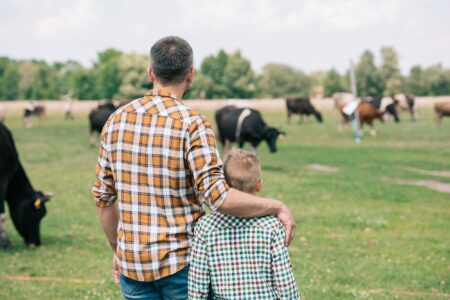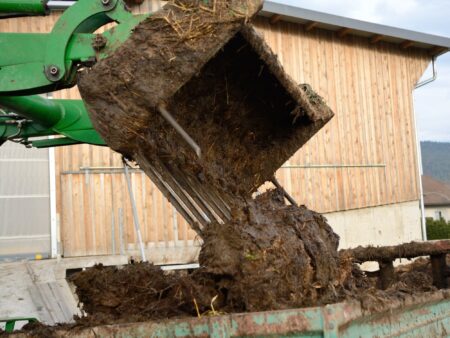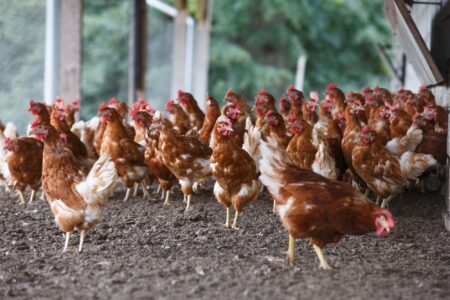On Tuesday, the U.S. Fish and Wildlife Service (USFWS) announced that it is seeking public input on a proposal to list the monarch butterfly as a threatened species under section 4(d) of the Endangered Species Act. Public comments on the proposal will be accepted until March 12, at which time the Service will evaluate and determine whether to list the monarch butterfly.
Various farmer groups have since responded to the announcement.
National Corn Growers Association
The National Corn Growers Association (NCGA) is a farmer-led trade organization that represents the interests of more than 300,000 farmers.
In a statement released on Tuesday, the NCGA said that growers’ voices during the comment period will be critical in shaping the final rule and any restrictions placed on activities that may affect monarchs.
In the statement, Illinois farmer and NCGA President Kenneth Hartman Jr. said, “As corn growers, we look forward to providing input on how we can protect monarch butterflies without disrupting critical agricultural activities that help fuel and feed the world.”
American Farm Bureau Federation
The American Farm Bureau Federation (AFBF) is the national advocate for farmers, ranchers, and rural communities. Farm Bureau members in over 2,800 counties meet annually to discuss and vote on ag-related policies, and those policies set the agenda for state Farm Bureaus and AFBF.
AFBF President Zippy Duvall commented on the proposal on Tuesday. “Preserving natural surroundings for America’s wildlife has long been a priority for farmers and ranchers. That dedication extends to the monarch butterfly,” he said.
According to Duvall, “The use of a 4(d) rule acknowledges the work farmers are undertaking to protect the monarch while recognizing the need for flexibility in conservation efforts between diverse regions and crops. This opens the door for an important dialogue about farmers as caretakers and cultivators of the land. Our farm families treasure that responsibility.”
Duvall said AFBF looks forward to a full review of the proposal and will submit robust comments. “We are also committed to the larger goal of modernizing the Endangered Species Act to protect wildlife and promote voluntary efforts to preserve at-risk species,” he said.
Farmers for Monarchs
Farmers for Monarchs is a Keystone Collaborative that consists of national organizations representing farmers, ranchers, and land owners; businesses working along the agricultural supply chain; researchers and academic institutions; federal and state entities; and conservation organizations. The collaborative supports productive agriculture and livestock operations in concert with monarch conservation, and it comprises 20 members, including the AFBF, the NCGA, and the American Soybean Association (ASA).
In a statement released Tuesday, Farmers for Monarchs encouraged farmers to continue their conservation efforts for the monarch butterfly.
“Farmers and landowners play a critical role in monarch conservation, and this threatened listing proposal provides a pathway for collaborative efforts that benefit monarch populations. This is the next step in a process that will take another year to reach a final decision. During this time, we strongly encourage farmers to develop new habitat projects or continue the voluntary monarch conservation initiatives already deployed on their land,” said Matt Mulica, senior project director at Keystone Policy Center, which facilitates Farmers for Monarchs.
“Today’s proposed rule also affords farmers the opportunity to weigh in during the public comment period. Farmers for Monarchs is committed to ensuring farmers have relevant information to share their voices and perspectives,” said Mulica.
Mariah Squire
American Soybean Association
The ASA has 26 affiliated state soybean associations representing 30 soybean-producing states and more than 500,000 U.S. soybean farmers. A primary focus of the group is policy development and implementation.
The ASA released a statement Tuesday calling on the USFWS to hold a transparent, science-based process. In the statement, ASA encouraged soybean growers to provide feedback on the proposal and share what steps they’re already taking to steward the environment well.
Brandon Wipf is an ASA board member and soy grower from South Dakota. He’s also ASA’s liaison with Farmers for Monarchs. Wipf said in the statement, “Farmers are proud to be part of the solution when it comes to protecting both the environment and species. We have long adopted voluntary conservation practices that support wildlife and specifically, monarch butterflies. We welcome this opportunity to share our story and ensure any future listing decision is grounded in sound science and allows farmers the flexibility to continue growing soy productively, sustainably, and using practices that help monarch populations thrive.”
Wipf continued, “Most U.S. farms have used various sustainability methods for years, and have continued to add additional conservation efforts along the way. For example, many farmers maintain land plots for wildlife food and habitat, including pollinators. And data shows more growers than ever are using practices that promote soil and water health, such as reductions in tillage and cover crops. Farmers need to continue doing what they have been doing: being good, proactive stewards of our natural resources, including maintaining conservation practices that help protect monarch butterflies.”
National Cattlemen’s Beef Association and Public Lands Council
The National Cattlemen’s Beef Association (NCBA) has represented America’s cattle producers since 1898, preserving the heritage and strength of the industry through education and public policy. As the largest association of cattle producers, NCBA works to create new markets and increase demand for beef.
The Public Lands Council (PLC) represents 22,000 cattle and sheep producers who operate with federal grazing permits in the West. The PLC advocates for these western ranchers who preserve our nation’s natural resources while providing vital food and fiber to the nation and the world.
In a joint statement released Wednesday, the NCBA and PLC called on USFWS to partner with livestock producers during the process. Garrett Edmonds, Director of Government Affairs and PLC with the NCBA, issued comments.
“USFWS must increase partnerships with livestock producers throughout this process, recognizing their work managing the landscape. As stewards of the land, ranchers work tirelessly to implement sustainable management practices to ensure the longevity of the lands they utilize. Recent studies have shown that grazing, and animal agriculture in general, builds robust habitat, increases insect populations, and manages invasive species on America’s pastureland,” said Edmonds. “The USFWS management plan must recognize the voluntary conservation work that ranchers do every day to care for America’s vast natural resources providing the regulatory certainty necessary for ranchers to manage their operations.”
Texas Department of Agriculture
Agriculture Commissioner Sid Miller, who was on the short list for USDA Secretary before Brooke Rollins was announced as the nominee, offered his thoughts on the proposal in a statement released Wednesday.
“The Biden Administration’s recent proposal to list the monarch butterfly as a threatened species is just the latest example of federal government overreach which cripples agriculture and rural development. Don’t be misled,” he said.
“This proposal isn’t about protecting butterflies. It’s about out-of-touch and out-of-control Washington bureaucrats forcing a radical agenda that punishes rural America and the people who call it home.”
Miller said the designation would “slap widespread restrictions on anything that might ‘disturb’ monarch habitat, making it nearly impossible to build or expand in rural areas. We’re not just talking about farmland. This will impact dairies, wind and solar farms, football stadiums, roads, airports, railways, feedlots, rural hospitals, parking lots, logging, and mining — you name it. These restrictions will hit Texas farmers, ranchers, small businesses, and consumers where it hurts, threatening the very industries that drive our state’s and nation’s economies.”
In Miller’s words, “This is nothing more than a parting shot from the Biden Administration, a desperate move to impose its heavy-handed, radical climate agenda on hard-working Americans before they leave office and sanity returns to our nation’s capital on January 20th. This is not a balanced approach to conservation; it’s a roadblock to growth, jobs, and prosperity, all in the name of feel-good policies. We deserve better.”


:max_bytes(150000):strip_icc()/Torsten20Asmus_1391925823-2000-e0ebd05b351a48ef846281e9bc4ddf95.jpg)
:max_bytes(150000):strip_icc()/MikeandJudyTrotter_preview-b27c7a1fdac54686a0452a9008cd464a.jpg)



:max_bytes(150000):strip_icc()/28954595787_ae924ce2ba_o-46b358e7631e4a869d7b11f8f221a2b2.jpg)



:max_bytes(150000):strip_icc()/CaseCombineAndTractorHarvesting1-WideShot-2000-60b55def8bf8468c99137e74255f4197.jpg)